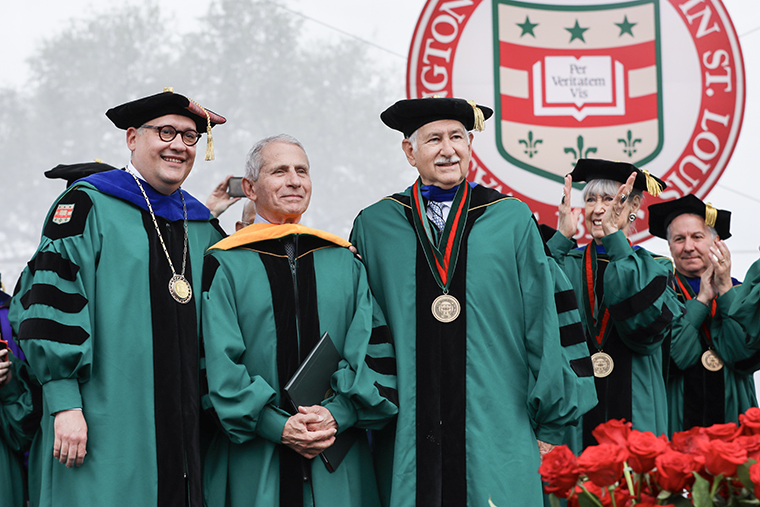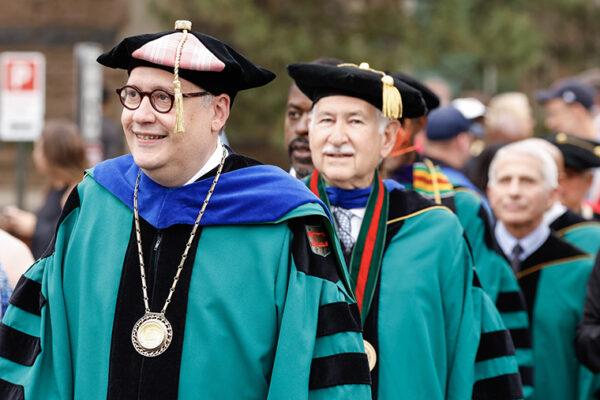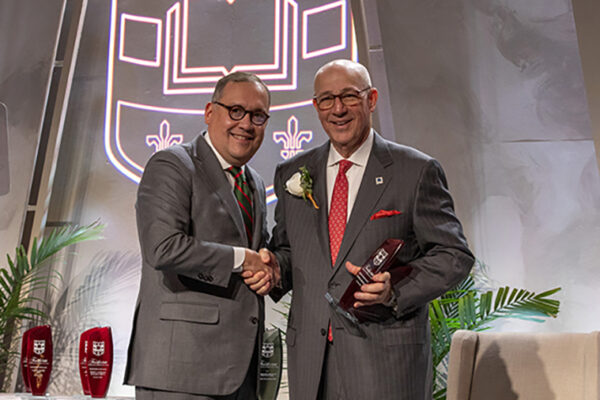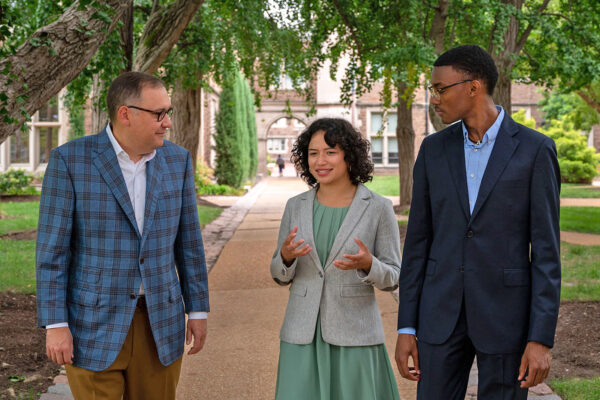Each April, the Danforth Campus thaws out, literally and metaphorically. Students slow their pace to enjoy warm rays of sun, and their happy greetings can be heard through my open office window. The Tisch Park fountains bubble once again, and at the end of the month, a treasured Washington University tradition transforms the campus: Reunion at ThurtenE Carnival.
At ThurtenE Carnival, the nation’s longest- running student-led fair, we’re able to welcome even more people into our community through fun, food and music, with proceeds benefiting our St. Louis neighbors. And as classmates reconnect and reminisce at Reunion, they honor the role that Washington University and the city of St. Louis have played in their life stories, and they share that proudly with their families.
Much of the conversation at Reunion is about what has changed on campus. Classmates marvel at the beauty of the East End and lament the closure of the Rat. They are impressed by Knight and Bauer halls and are perhaps just a little bitter about how the South 40 has been transformed since their day. And it’s not just the physical campus that has changed. Students today are studying topics that would have seemed like science fiction to those attending the first ThurtenE Carnival in 1908.
But much of what we know and love about this university has not changed. The curiosity and drive of our students. The passion and engagement of our faculty. The energy and sense of possibility one feels upon returning to this epicenter of discovery, learning and service.
The core of who we are as an institution remains unchanged, and that is by design. In fact, it is why we endure. When our charter was amended in 1857 to change our name from Eliot Seminary to Washington University, it was also amended to disallow “instruction either sectarian in religion or party in politics … and no sectarian or party test shall be allowed in the election of professors … or in the admission of scholars.” It was our first policy of academic freedom, or freedom of expression, on campus. And our commitment to free inquiry has only been strengthened as our institution has progressed.
Academic freedom is the cornerstone of discovery. When scholars are free to follow the curiosity of their intellects and ask difficult or controversial questions, they push the boundaries of current knowledge and societal practices that may no longer serve the truth.
In 1857, in 1969, during the Cold War and in the divided landscape of 2023, WashU has fiercely protected our students’ and professors’ right to speak the truth as they see it, without criticism or punishment from the university — because, in a democracy, they are the agents of social change and innovation. Dissent, tough conversations and disagreement are part of that process. And at WashU, they always will be. To that end, we work to develop minds that can be comfortable navigating uncomfortable ideas.
In 1853, our founders certainly could not have imagined the world we’re living in today. And yet, they gave us a reliable road map when they claimed the motto Per Veritatum Vis, or Strength Through Truth. Academic freedom is the foundation of our search for truth, and it is the reason that, when today’s seniors attend their 50th Reunion in 2074, our campus will still be a place of passion and possibility.



